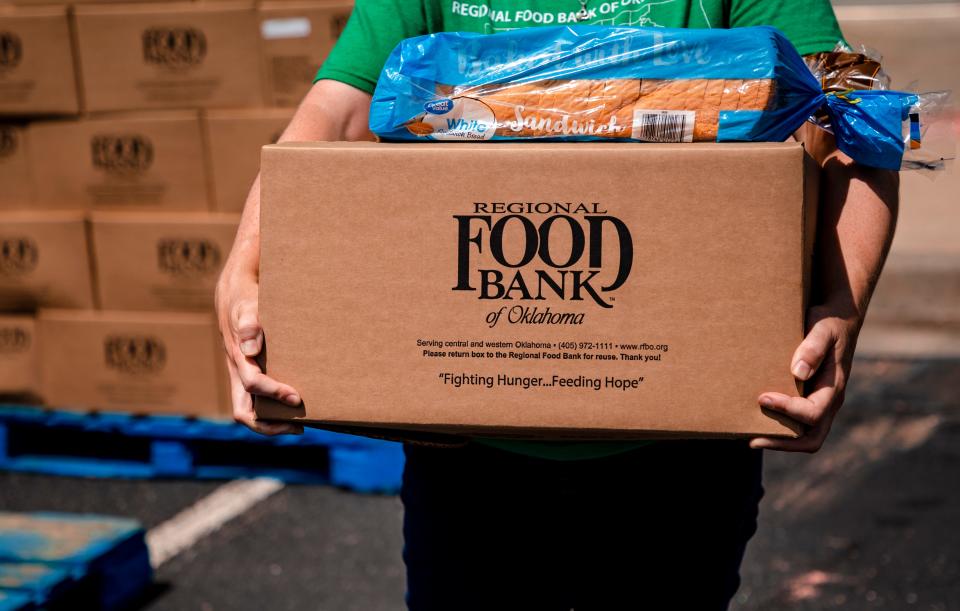Guest: As supplemental food funds decrease, need increases for many of our fellow Oklahomans
For more than 408,000 Oklahoma low-income families, the arrival of March means the end of a COVID-19 emergency program that, for the past three years, has provided additional funds to help them cover the rising cost of food each month.

The Supplemental Nutrition Assistance Program, known as SNAP, is our country’s most important anti-hunger program. A federally funded program, SNAP keeps families out of poverty by providing supplemental funds for their monthly food budget. The majority of SNAP beneficiaries are children, older adults and individuals with disabilities, including disabled military veterans. For every one meal a food bank provides, SNAP provides nine meals.
Since April 2020, SNAP beneficiaries have received additional funds — known as emergency allotments — each month to help ensure low-income families could still provide food during the economic downturn as a result of the pandemic.
In the past few months, Regional Food Bank of Oklahoma staff have answered an increasing number of phone calls from concerned Oklahomans, worried about how they are going to provide enough food for their families when the emergency allotments end. With skyrocketing food prices, too many of our neighbors will be forced to make impossible decisions between paying for groceries and other necessities like rent, utilities and medication.
More:OKC parents struggle with rising food and diaper costs, all as SNAP benefits set for drop
It is important to note that low-income households were more likely to have lost work or income as a result of the economic downturn caused by the pandemic and many have struggled to return to their pre-pandemic standard of living.
The loss of the SNAP emergency allotments will vary with the size of the household. On average, SNAP households will lose at least $95 per month, while some families might see a reduction of $250 per month or more. For seniors, households with children and Oklahomans receiving disability benefits, the loss will be devastating.
Thanks to the generosity of so many Oklahomans, the Regional Food Bank and our partners stand ready to respond to what we know will be an increased need for food assistance. We want to assure anyone living with food insecurity that assistance is available. We have partnerships with nearly 300 food pantries, congregate meal sites and food assistance programs throughout our 53-county service area to ensure that our fellow Oklahomans have access to free, nutritious food. People can find a nearby pantry at rfbo.org/get-help.
In addition, the Regional Food Bank works with organizations Hunger Free Oklahoma and the Oklahoma Department of Human Services to help get the word out about additional resources that are available for low-income households.
I’m often asked how others can help and I’m pleased to respond that there are several ways. First, financial donations go a long way. For every $1 donated, we help provide four meals. I also encourage people to register for a volunteer shift to help us sort and pack food boxes and prepare meals for children and seniors. Another option is to start a food drive in your neighborhood, at a school or place of worship and donate the food to a nearby food pantry. You also can advocate for public policy that helps boost food and economic security for low-income neighbors.
Our mission is to lead a network that provides nutritious food and pathways to self-sufficiency for people facing hunger so that we can one day live in an Oklahoma where no one goes hungry.

Stacy Dykstra is CEO of Regional Food Bank of Oklahoma.
This article originally appeared on Oklahoman: Guest: Reduction of Oklahomans' supplemental food funds heightens need

